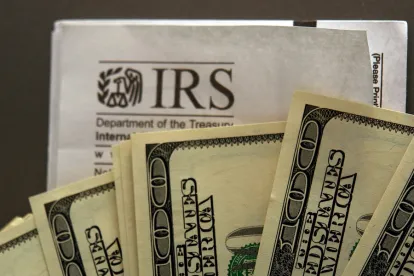|
Revenue Procedure 2020-23, issued by the Internal Revenue Service (IRS) on April 8, 2020, provides a broad relief to partnerships due to the Coronavirus Disease 2019 (COVID-19). It allows partnerships that are subject to the centralized partnership audit regime to file amended 2018 partnership returns (Forms 1065) and Schedules K-1 and/or amended 2019 partnership returns and Schedule K-1s if already filed. This relief was needed to allow partnerships to claim and take advantage of retroactive tax benefits provided by the Coronavirus Aid, Relief, and Economic Security Act, P.L. 116-138 (CARES Act) on a more rapid and efficient manner than filing an administrative adjustment request pursuant to Code §6227 (AAR) as mandated by the centralized partnership audit regime. As a result, partners of partnerships that would file 2018 and/or 2019 amended partnership returns and Schedule K-1s may be able to obtain a refund of any overpaid taxes in those years without the delay of the partnership having to go through the AAR procedure, discussed in more detail below. Such retroactive tax benefits under the CARES Act include, for example, the allowance of 100% bonus depreciation for qualified improvement property placed in service in 2018 or 2019, the allowance of NOL carrybacks, and the relaxation of the interest deduction limitations under Code §163(j). Revenue Procedure 2020-23 also specifically allows (but does not require) domestic partnerships that are subject to the centralized partnership audit regime that own controlled foreign corporations (CFCs) to apply on amended 2018 partnership returns and Schedules K-1 the final regulations under Code §951A issued on June 21, 2019 in determining their global intangible low-taxed income (GILTI) under Code §951A. This applies to partnerships who otherwise determined GILTI on their initially-filed 2018 partnership returns based on the prior proposed regulations under Code §951A issued on October 10, 2018 (in particular, Prop. Regs. §1.951A-5). A related relief to partnerships engaged in real property businesses or farming businesses is offered by Revenue Procedure 2020-22, issued by the IRS on April 10, 2020. Revenue Procedure 2020-22 provides an automatic extension of time until October 15, 2021 for certain taxpayers, including partnerships engaged in real property businesses or farming businesses, to elect out of the Code §163(j) limitations on interest deductions for taxable years 2018, 2019, or 2020 (and thus deduct net business interest expense with no limitations) at the cost of depreciating their real property and personal property assets over a longer time than if such elections are not made. Such elections are made pursuant to Code §163(j)(7) and they are commonly referred to as an “electing real property trade or business” election or an “electing farming business” election. Although such “electing real property trade or business” or “electing farming business” elections are generally irrevocable, Revenue Procedure 2020-22 also allows those taxpayers (including partnerships) who made such elections on their 2018 and/or 2019 returns to withdraw such prior elections on an amended return or an AAR as if they were never made. This allows such taxpayers to deduct net business interest expense in 2018 and/or 2019 under the more relaxed limitations under Code §163(j) that apply under the CARES Act for 2018, 2019 and 2020, and thus depreciate their real property assets over a shorter time than permitted under such elections. Revenue Procedure 2020-23 also provides instructions as to how to file amended 2018 and 2019 partnership returns. Revenue Procedure 2020-23 does not prevent a partnership from filing an AAR. If a partnership has previously filed an AAR and wants to file an amended return, the partnership should use the partnership items as adjusted in the AAR. AAR Procedure IssueEach partnership subject to the centralized partnership audit regime enacted by the Bipartisan Budget Act (BBA) of 2015, P.L. 114-74, as amended, is prohibited under this regime from amending its annual information returns (Form 1065, including Schedules K-1) for taxable years starting in 2018, 2019, and future tax years. Instead, a partnership must file an administrative adjustment request (AAR) pursuant to Code §6227 and receive permission for the adjustment from the IRS. An AAR allows partnership tax adjustments to be claimed only on the partnership’s current tax year’s partnership return even if such adjustments relate to prior years. On April 1, 2020, the IRS Large Business and International Division (LB&I) updated its Internal Revenue Manual to provide guidance on the AAR application procedure (LB&I-04-0320-0005). As a result of such restriction on filing amended partnership returns under the centralized partnership audit regime, any retroactive CARES Act tax benefit claimed through an AAR would be at the earliest reflected in a 2020 tax year’s partnership tax return and Schedule K-1 that would not be filed until 2021. Revenue Procedure 2020-23 addresses this delay in benefiting from the CARES Act by allowing partnerships to file amended partnership returns (Forms 1065) and Schedules K-1 for 2018 (and 2019 if partnership returns have not yet been filed) prior to September 30, 2020 and thus allows their partners to obtain a refund of any overpaid taxes in those years without the delay of going through the AAR procedure. |
IRS Revenue Procedures Allows Partnerships to Amend 2018 and 2019 Returns to Take Advantage of Retroactive CARES Act Tax Benefits
Tuesday, April 14, 2020
Current Public Notices
Published: 15 September, 2025
Published: 15 September, 2025
Published: 9 September, 2025
Published: 9 September, 2025
Published: 8 September, 2025
Published: 4 September, 2025
Published: 28 August, 2025
Published: 25 August, 2025
Published: 22 August, 2025
Published: 20 August, 2025
Published: 20 August, 2025
Published: 18 August, 2025
Published: 11 August, 2025
Published: 8 August, 2025
Published: 26 June, 2025



 />i
/>i

